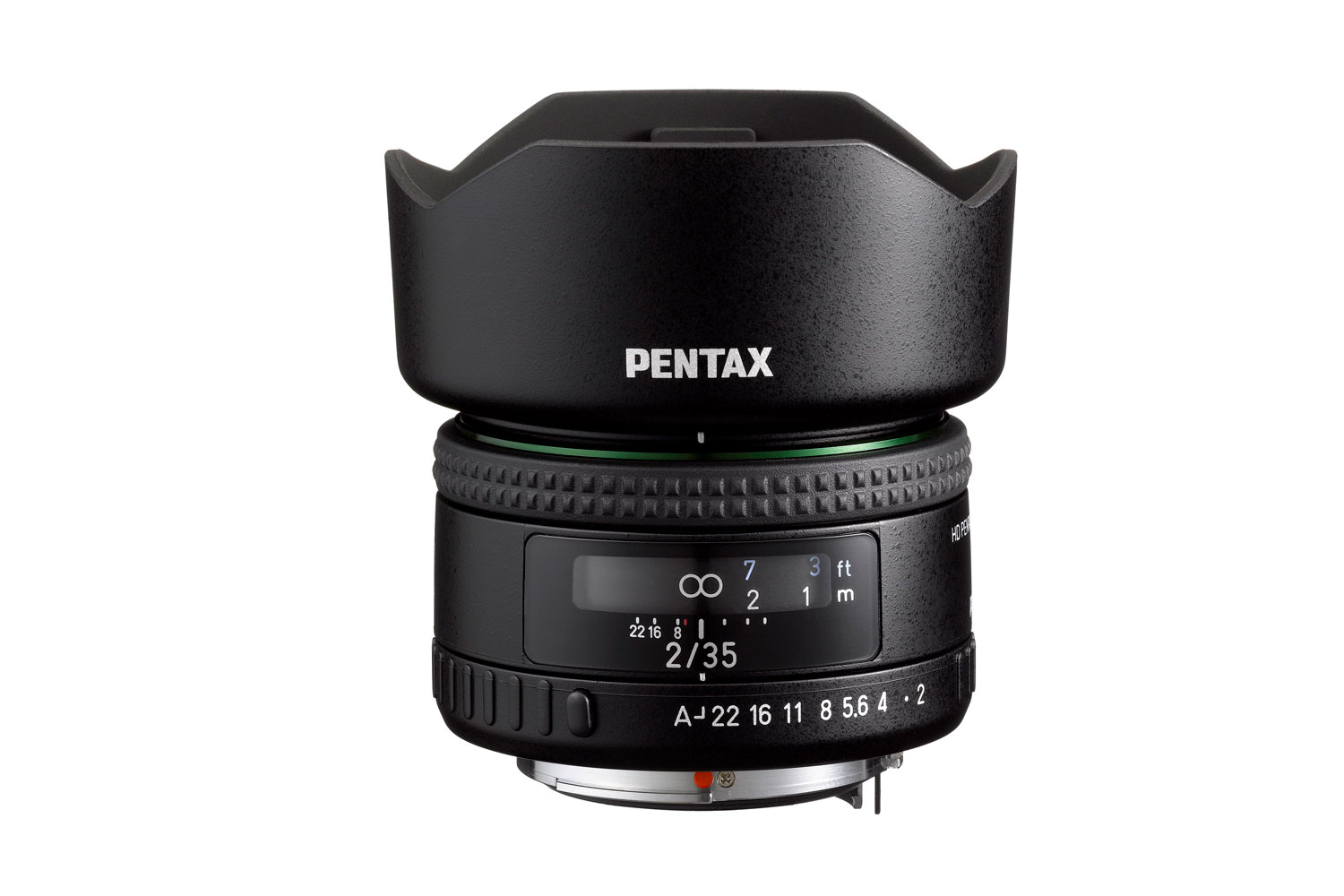Ricoh announced two new lenses on Thursday, January 31, for Pentax K-mount DSLRs, including the high-end DA Star Series 11-18mm F2.8 ED DC AW, a $1,400 wide-angle zoom for its APS-C cameras. The second lens, the FA 35mm F2, is built for full-frame DSLRs like the K-1 Mark II. Not part of the premium Star Series, that lens carries a much more modest price of $400. Both lenses are advertised for outdoor photography, a market niche Ricoh-Pentax has focused on with rugged, weather-resistant camera bodies even on its entry-level models. The 11-18mm, however, is the only one sporting the AW (all-weather) designation.
The headline feature of the 11-18mm is the constant f/2.8 maximum aperture. That combination of a wide-angle view and good light-gathering capability puts it in league with popular third-party lenses like the Tokina 11-20mm f/2.8, albeit at more than twice the price. If our prior experience with Star Series lenses is anything to go off of, however, we expect the 11-18mm f/2.8 to earn that price; the Pentax FA Star Series 50mm f/1.4 we tested last year was the best normal focal length prime we had ever used, and carried a similarly costly price tag.
Promising edge-to-edge sharpness suitable for today’s high-resolution cameras, the 11-18mm f/2.8 should naturally find a home inside landscape photographers’ camera bags. While a real-world test remains to be seen, Ricoh claims the lens maintains that sharpness even at the widest aperture, which should make this a good choice for astrophotography where a large aperture is often necessary.
The 11-18mm also incorporates what Ricoh calls a Focus Clamp Mechanism, which locks the focus and prevents accidental changes even if the focus ring is turned. Additionally, it can support a dew heating strip without interfering with the focus ring to prevent condensation when shooting outdoors.
The Pentax-FA 35mm f/2 is a compact option for both full-frame and APS-C Pentax DSLRs, offering a roughly 50mm equivalent on the smaller format. It appears to be based on the same physical and optical design of the older 35mm F2 AL, using six glass elements in five groups and offering a compact, lightweight build measuring 2.5 x 1.8 inches and weighing just 6.8 ounces. What’s new is the use of Pentax’s latest lens coatings to reduce flare and ghosting, which should come in handy for outdoor backlit portraits.
Both new lenses are now available for pre-order.





